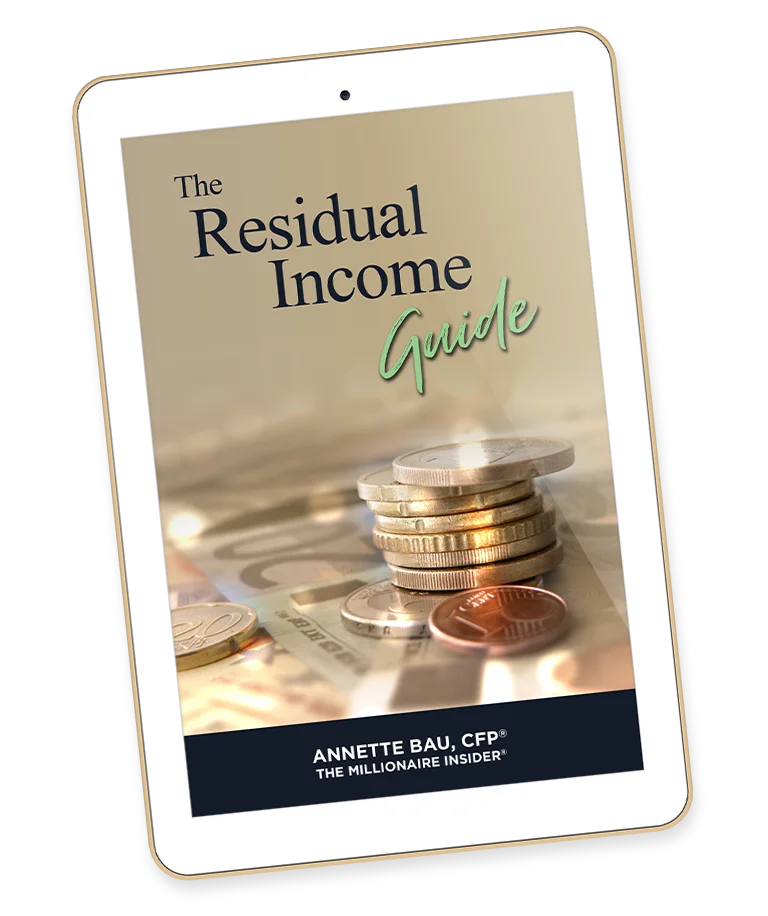
In “What is Estate Planning?”, you will learn the important details of planning your estate and how to create a successful estate plan.
Estate planning is the process of managing, distributing, and disposing of your property and assets when you die or become incapacitated.
This involves creating a plan that considers your unique circumstances and personal goals. Creating your estate plan includes building a strategy and drafting various documents, such as wills, trusts, power of attorney, advance directives, etc.
Estate planning can help you:
- Distribute your property and assets to your chosen recipient
- Minimize the tax burden on your heirs
- Decide who will care for you in the event you are incapacitated or unable to attend to your affairs
- Ensure that your minor children and those dependent on you are taken care of
- Protect your assets
- Plan for the management of your business and affairs
Planning your estate is an essential part of a financial plan and can provide you with peace of mind, knowing that your affairs are in order.
Estate Planning Definitions
What is an Estate Plan? Terms you need to know:
Durable Power of Attorney (POA)
A durable power of attorney is a legal document that designates an individual to make decisions on your behalf if you become incapacitated. There are two primary types of POAs.
Financial Power of Attorney (FPOA)
A financial power of attorney  is a legal document that gives someone else the authority to make financial decisions on your behalf. For example, they can make legal decisions for you whether you are physically impaired or just out of the country for a few days.
is a legal document that gives someone else the authority to make financial decisions on your behalf. For example, they can make legal decisions for you whether you are physically impaired or just out of the country for a few days.
The person you appoint as your financial power of attorney (also known as an “agent” or “attorney-in-fact”) will have the legal authority to make changes or adjustments to your financial accounts. And while most people think this is something older people need, it is also important for younger people. If they get injured in a car wreck or sick, their parents or partner can pay their bills and stay on top of their affairs. Regardless of your age, choose someone you can trust and who will act in your best interest.
Examples include paying bills and investing your money, as well as managing bank accounts, real estate, or retirement plans.
Healthcare Power of Attorney (HPOA)
An HPOA is a directive that allows another person to make medical decisions on your behalf if you cannot.
Will
A will is a written document that provides instructions for what happens to your property and possessions after you die, including who receives your assets.
A will can also appoint a guardian for your minor children. If you do not have a current will at your death, the court may appoint an administrator to manage your assets and determine who will care for your children.
Advance Healthcare Directive (AHCD)
An advance healthcare directive is a legal document communicating your wishes regarding medical treatment if you cannot. Examples include life-sustaining treatment, organ donation, and other critical medical choices.
Conservatorship
A court can appoint a conservatorship to manage another person’s financial affairs and daily life. For example, if your parent is diagnosed with dementia and determined unable to make decisions on their behalf, you could be appointed their conservator.
As a result, you would have the legal authority and responsibility to make decisions on behalf of your parent.
A conservatorship is specifically in reference to an adult in this type of situation. When a minor child is involved, this is generally called “guardianship.”
If you have questions about estate planning, click here.
Revocable and Irrevocable Trusts

A revocable trust is a trust that can be revoked or amended by the settlor while they are alive.
This trust is often used in estate planning to help manage assets and minimize taxes. The trustee has a fiduciary duty to manage the trust property for the benefit of the beneficiaries.
There are many reasons why someone might choose to create a revocable trust. The first reason is generally to avoid probate. Probate is the legal process of distributing a person’s assets after death. Probate can be time-consuming and expensive, which makes a trust the most commonly preferred option. The second reason is privacy. And the third reason is reducing the estate tax due at a person’s death.
An irrevocable trust is a type of trust that cannot be easily modified or terminated. This means that the grantor (the person who creates the trust) cannot change it.
The primary purpose of an irrevocable trust is to protect the grantor’s assets from creditors and estate taxes.
Beneficiary Designations
A beneficiary designation is a document that allows you to name someone who will receive your assets after you die.
Life insurance, annuity policies, payable on death accounts,  and retirement accounts all pass via a beneficiary designation.
and retirement accounts all pass via a beneficiary designation.
When you make a beneficiary designation, you essentially create a legally binding declaration of who should receive your assets upon your death. As a result, you get to decide who will inherit your assets.
Primary Beneficiary
A primary beneficiary is a person or entity first in line to receive benefits.
Examples of assets that pass via a beneficiary designation include retirement accounts, annuities, and insurance policies.
A person’s trust or will names the primary beneficiary and may also name a contingent beneficiary or beneficiaries.
Contingent Beneficiaries
A contingent beneficiary is a person, trust, or organization that receives your assets if the primary beneficiary dies before you do. Contingent beneficiaries may include family members, trusts, charities, or non-profit organizations.
If you are not certain that the title and beneficiary designation of your assets match your estate plan, click here.
Estate Tax
The estate tax is a tax imposed on the value of an individual’s property and assets at the time of their death. This is the total value of an individual’s property and assets minus any debts and liabilities.
The estate tax rate varies depending on the value of the estate and the state of residency.
This tax helps to fund the government and was designed to prevent the accumulation of too much wealth in one family.
As a result, estates with illiquid assets, such as a private business or real estate, may need liquidity at death. For this reason, many families purchase life insurance in an irrevocable trust.
Gift Tax
The gift tax is a tax imposed on the transfer of property from one individual to another, where the donor is responsible for paying the tax.
This tax is separate from the estate tax and is levied on the transfer of property at death.
The value of the property transferred ultimately determines the tax amount. Therefore, the recipient does not usually have to pay any tax on the gift.
The 6-Step Estate Planning Process

Now that we have covered, “What is Estate Planning?”. let’s review the six steps of the estate planning process.
1. Create a list of all your assets and liabilities.
Your assets are items you own, and your liabilities are what you owe others. Your assets, less your liability, make up your estate and your combined net worth.
Examples include:
- Cash, CDs, checking, and savings accounts
- Stocks, mutual funds, and bonds
- Real estate (including land and your home)
- Cars, boats, etc.
- Business interests
- Personal use assets such as jewelry, gold, antiques, art, etc.
It is important to complete a written inventory of your assets before meeting with an attorney or estate planner.
2. Gather all statements and documents
Now that you have a list of assets, you must gather those documents and other pertinent records.
Examples include:
- Marriage license
- Death certificate
- Divorce decree
- Life, disability, and P&C insurance policies
- Long-term care insurance policies
- Safety-deposit box
- Titles of vehicles, including cars, boats, etc.
- Usernames and passwords so your trustee or executor can access your accounts.
3. Schedule a meeting with your family
The family meeting may only include your partner or may consist of your entire family. As your children get older, it is generally a good idea to include them in the planning process so they know what to expect after you die.
4. Set up a meeting with an estate planning attorney
First things first: ask around for referrals of estate planning attorneys. Your financial advisor and CPA should be able to provide you with multiple referrals for qualified attorneys.
Interview more than one attorney until you find the right fit. During each interview, ask direct questions until you feel comfortable establishing a relationship with them.
5. Draft your documents
Essential documents to have on hand may include a:
- Will
- Living trust and pour-over will (A pour-over will is a type of last will and testament that “pours” your assets into a trust.)
- Power of attorney
- Living will
6. Schedule annual family meeting

The annual meeting is to review your current plan and identify any changes you need to make. While you generally won’t need to update your documents annually, you will likely need to make changes every several years depending on tax law or life changes.
Examples include family deaths, divorce, or births. A competent attorney will update you on additional changes affecting your plan.
Conclusion – What is Estate Planning?
In summary, estate planning is an in-depth process that entails managing, distributing, and disposing of your personal property and assets when you die or become incapacitated.
The process of estate planning is often complicated and even overwhelming. Therefore, hiring an attorney and financial advisor to help you during this process is critical and ensures that your future wishes are legally upheld.

